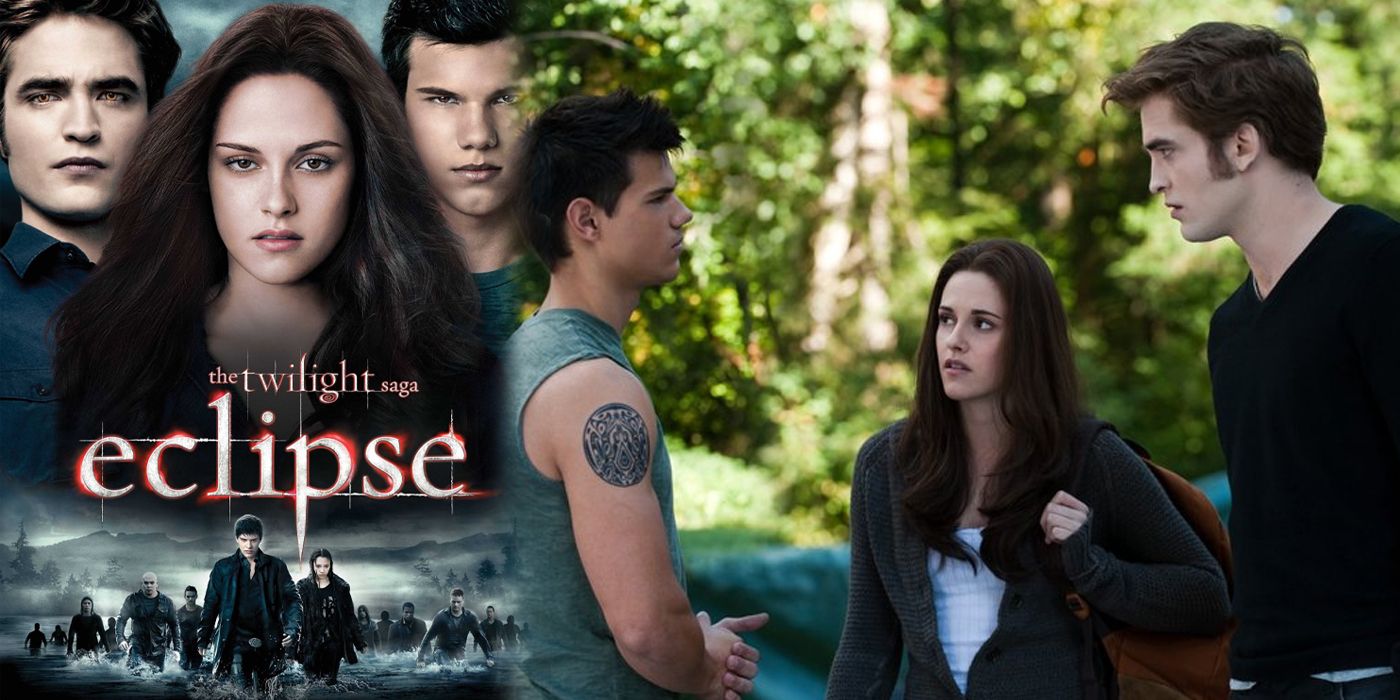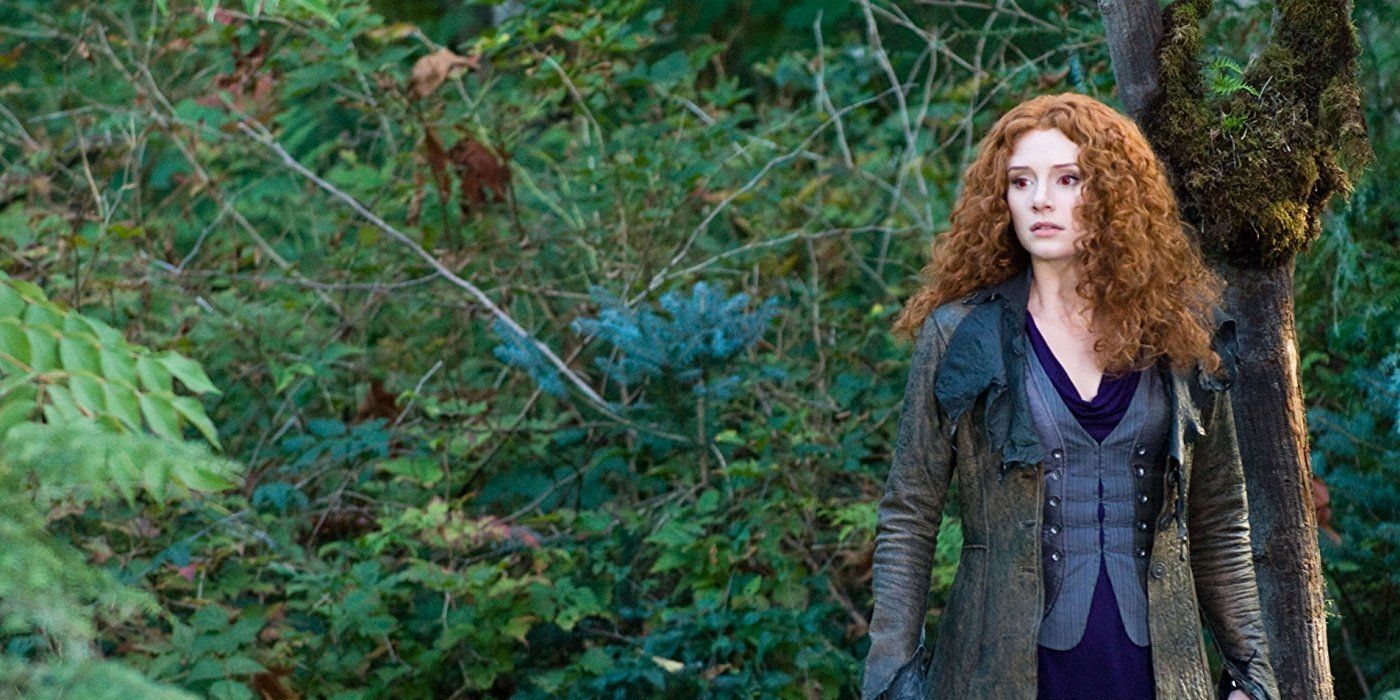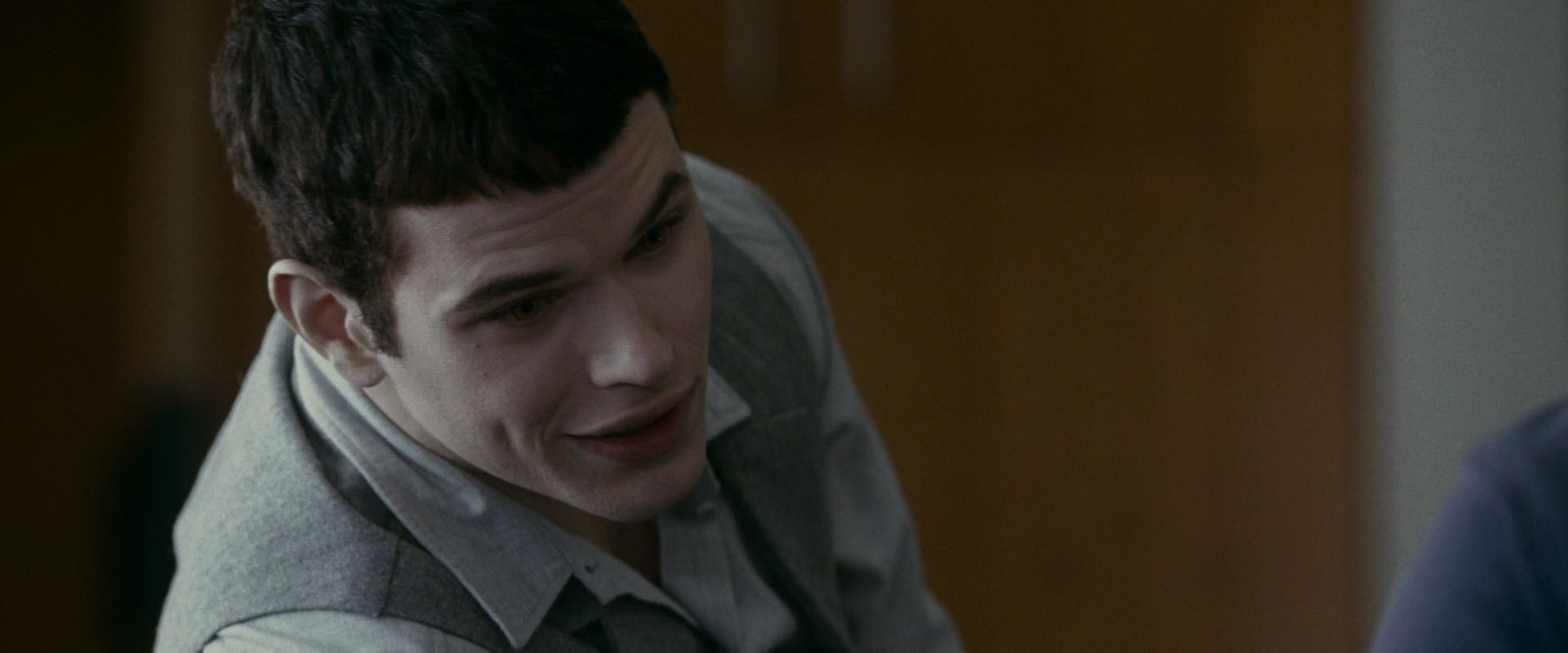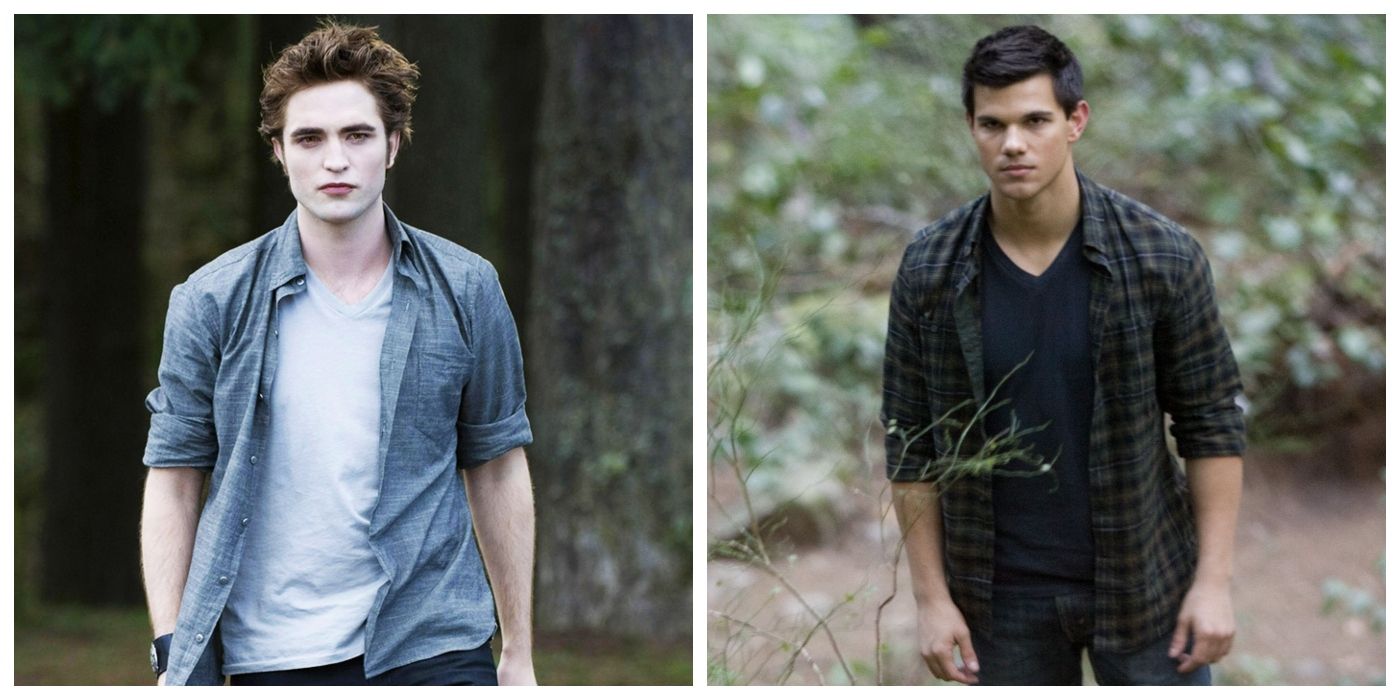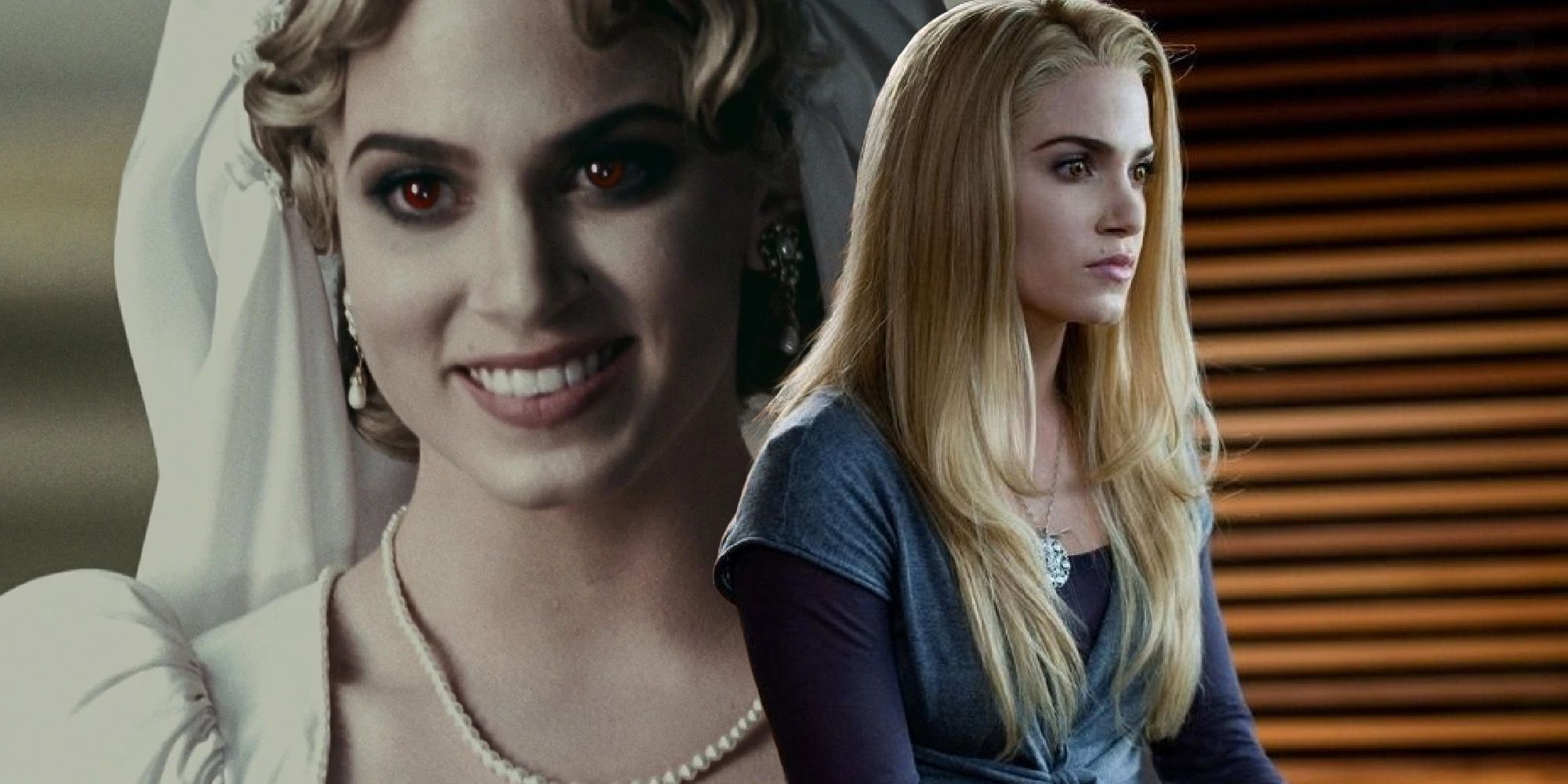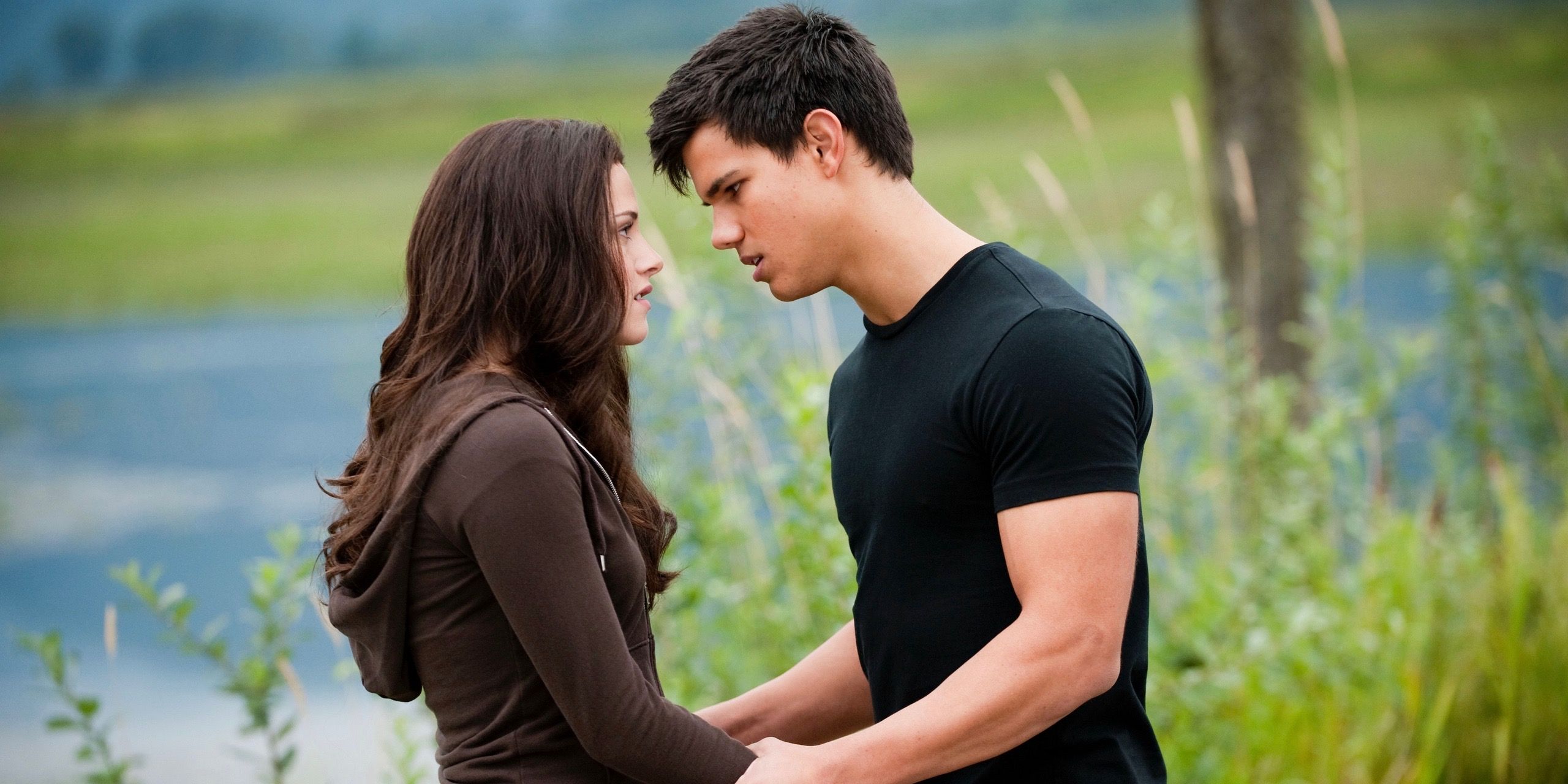Released in 2010, the third Twilight movie Eclipse is easily the most underrated of the franchise’s five films thanks to its love triangle, fast-paced action, and involving backstory flashbacks. Beginning in 2008 with Lords of Dogtown director Catherine Hardwicke’s sleeper hit Twilight, the Twilight Saga was a five-film franchise that adapted the teen paranormal romance novels of the same name by author Stephenie Meyer into blockbuster movies.
Although critics were largely unimpressed by the Twilight movies, the massive global fanbase of the franchise turned out in droves to see the story of Bella Swan, a small-town girl, and Edward Cullen, her ageless vampire love interest, on the big screen. After the success of Twilight, Hardwicke opted not to return for the movie's 2009 sequel New Moon. Her absence was sorely missed, with New Moon earning worse reviews than its already-critically-disliked predecessor thanks to its slow pace and inconsistent performances.
However, despite this apparent downward trend the third film of the series, 2010’s Eclipse, proved to be a marked improvement on its pair of predecessors and remains underrated among both critics and the still-sizeable Twilight fandom. With a clearer love triangle, an action-heavy, dramatic plot, and a slew of backstories for the Cullen clan's many members, the third film in the Twilight series is comfortably the most underrated among fans and critics alike and deserves credit for providing the fast-paced, self-aware tone that the rest of the series struggled to match.
Eclipse’s Bigger (But Not Too Big) Story
The plots of the Twilight novels were never the series' strong point, but the first two films did little to flesh out the thin storytelling. The story of New Moon sees Edward volunteer to be killed by the Volturi, while the original movie chronicles he and Bella’s early courtship and a run-in with one violent vampire. The third movie, in contrast, focuses on the romantic plot that drives the series (will Edward or Jacob be the one Bella ends up with?) while also expanding the story's scope to an all-out war between covens of vengeful vampires and defensive werewolves. However, despite this increased scope, Eclipse doesn’t fall victim to subsequent sequel Breaking Dawn’s problem, promising a wild action-packed finale that a teen romance was never going to live up to. Instead, Eclipse’s story is self-contained enough to be a satisfying fantasy spectacle, but not as limited as the barely-there plots of Twilight and (particularly) New Moon.
Eclipse’s (Very Necessary) Sense of Humor
Without much gore (although Victoria’s decapitation is an impressive touch for a PG-13 movie), Eclipse’s “vampires vs werewolves” story was in danger of proving sanitized even for fans of paranormal romance. However, injecting moments of self-aware humor and levity, some of which even poke fun at the premise of Twilight itself, means that director David Slade’s movie never takes itself too seriously. As a result, the bloodlessness of the action is not a disappointment, with the usually self-serious series lightening up a little for this outing. Contrast this with the humorless final film in the series, which spends its considerable, slow runtime building up to an epic battle—which never actually happens due to Breaking Dawn Part 2’s plot-hole-ridden deus ex machina.
Eclipse Is The "Edward Vs Jacob" Twilight Movie
Despite the Team Jacob and Team Edward power struggles being perhaps the single most infamous element of Twilight’s cultural impact, it’s only in Eclipse that Bella actually has to choose between the two in person. Jacob Black barely appears in the first film while a self-pitying Edward is absent for most of the second movie’s action. Meanwhile, Breaking Dawn opens with a wedding scene wherein Bella becomes Ms. Cullen, making it clear that her mind is made up. As a result, it is only in the mountaintop climax of Eclipse where Bella is left to choose between both her suitors while both are onscreen together and able to finally fight over her, with Eclipse providing the promised showdown (limp as it may be) that New Moon spends most of its runtime building up to (when Jacob isn’t busy beating up the largely-excised love interest Mike, that is).
Eclipse’s Many Backstories
One of the most enjoyable elements of Eclipse allows 30 Days of Night director David Slade to flex his horror filmmaking skills in the darkest and goriest moments of the entire series. The backstories of the Cullen clan’s Rosalie Hale and Jasper Cullen are gruesome, affecting, and in a first for the series, genuinely unsettling, and both Jasper’s seduction as a wounded soldier and Rosalie’s rampaging revenge after her fiancé’s unconscionable betrayal of her are the strongest scenes either actor gets in the entire franchise. 30 Days of Night proved that Slade could make use of buckets of blood, but Eclipse’s standalone scene of Rosalie's dark backstory, in particular, harkens back to the director’s unnerving debut Hard Candy, wherein little of the disturbing material is shown onscreen but the implied violence proves all the more effective thanks to this restraint. The same is true of Bree Tanner's tragic demise which, although not dwelled on, proves more effective in its movie iteration than the book's over-the-top melodrama.
Where Eclipse Still Falters
Despite its status as the most underrated Twilight movie, Eclipse is far from perfect. Although the scenes featuring the group may not be as egregious as the equivalent sequences in New Moon, Eclipse’s increased focus on the Quileute tribe that Jacob and company are a part of does lead to some unfortunate misrepresentation of the real-life tribe and their traditions. However, it is hardly fair to blame Slade’s film for this when many elements of Twilight’s mythos, including Jacob’s tattoo, are controversially taken from Quileute traditions, an issue that no one director could have reversed in a single installment of the series. However, another area where Eclipse falls down is one that Slade’s usually economic storytelling style could have helped with.
Although it is admirable that Eclipse avoids getting too far bogged down in backstory, excising the Twilight canon origins of both Emmett and Victoria robs the movie of both some solid comic relief and a villain with a clear sympathetic motivation. Of the two missing moments, it is Victoria’s missing backstory that impacts the story more, as understanding the reason that James’ heartbroken mate would never work with the Volturi makes the action of Eclipse more effective and makes her a more fully rounded figure in the eyes of the audience. However, dropping both Victoria and Emmett's backstories is an understandable elision given the movie’s limited runtime, and despite its flaws, Eclipse retains its title as the most underrated Twilight movie.

